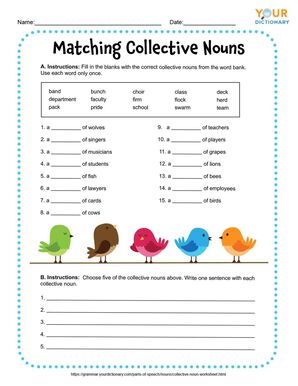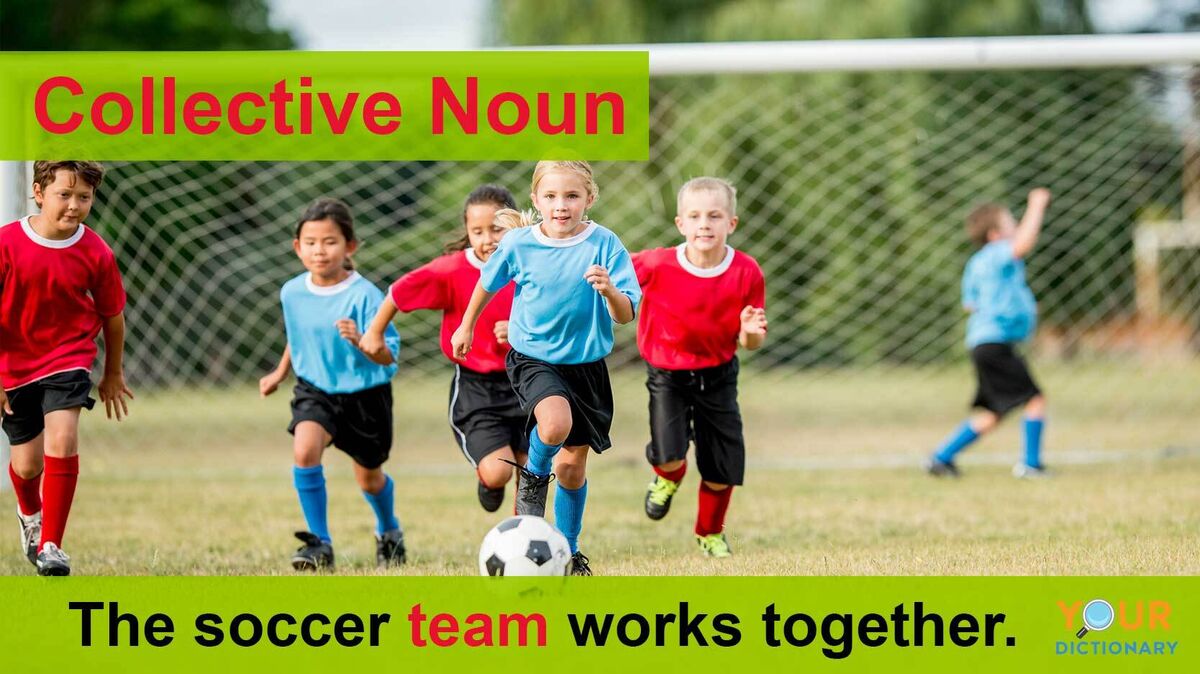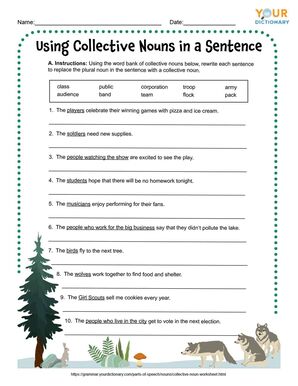

Collective nouns refer to groups of people, animals or objects — but they’re conjugated like singular nouns. That can be confusing for students and English learners who are working on adding collective nouns to their sentences. Take a look at some collective nouns practice worksheets to challenge yourself and your class.
Defining Collective Nouns
When you think of collective nouns, you may think of group or family. But there are many different collective nouns used in English grammar. While collective nouns refer to more than nouns (for example, “a team of players”), the noun itself is singular without an "s" at the end of it.
Practice creating and using collective nouns in the following worksheets. You can review your knowledge in these sample collective noun exercises, or you can download the printable worksheets for even more practice opportunities.
Collective Noun Worksheet #1: Matching Collective Nouns
If you’re new to collective nouns, here’s a chance to clarify what they mean. Take a look at these collective nouns and see how many you already know. Download the printable worksheet for additional exercises.

Matching Collective Nouns Practice
Match the collective nouns (choir, deck, herd, school, team) with the proper plural nouns.
- a __________ of cows
- a __________ of singers
- a __________ of players
- a __________ of cards
- a __________ of fish
Answers for Matching Practice
How many could you match correctly? See how you did:
- a herd of cows
- a choir of singers
- a team of players
- a deck of cards
- a school of fish
Collective Noun Worksheet #2: Using Collective Nouns
Now you can practice changing plural nouns to collective nouns! It’s a great way to ensure that you know the correct vocabulary as well as the proper grammar. If you’d like more of a challenge, download the rest of the worksheet for more practice.

Collective Nouns worksheet2
Click to View & DownloadUsing Collective Nouns Practice
Rewrite each sentence to replace the plural noun in the sentence with one of these collective nouns: class, army, team, band, audience.
- The players celebrate their winning games with pizza and ice cream.
- The soldiers need new supplies.
- The people watching the show clap when the curtain goes down.
- The students hope that there will be no homework tonight.
- The musicians enjoy performing for their fans.
Answers for Using Collective Nouns Practice
How did you do? Check your answers for the first worksheet here. Make sure you conjugate your verbs correctly!
- The team celebrates their winning games with pizza and ice cream.
- The army needs new supplies.
- The audience claps when the curtain goes down.
- The class hopes that there will be no homework tonight.
- The band enjoys performing for their fans.
More Noun Worksheets
If you’re ready for more exercises, check out these additional noun worksheets. They vary in difficulty level and are perfect for mastering this important part of speech.
- Practice telling the difference between common and proper nouns with these engaging common and proper noun worksheets.
- Learn how to conjugate plural nouns properly in different contexts with plural noun worksheets.
- What happens when a noun owns something? See how possessive nouns work with these possessive noun exercises.
- Combine nouns properly with a compound noun review activity.
- If you’ve mastered the different types of nouns, test your knowledge with a challenging noun quiz.
Master Correct Conjugation
Collective nouns represent groups of nouns, but are still treated like singular nouns in the context of a sentence. Once you’ve mastered conjugating collective nouns, you are ready to move on to different types of nouns with the same conjugation. Compare collective nouns to abstract nouns in a sentence, and see how similar (and different) they can be.